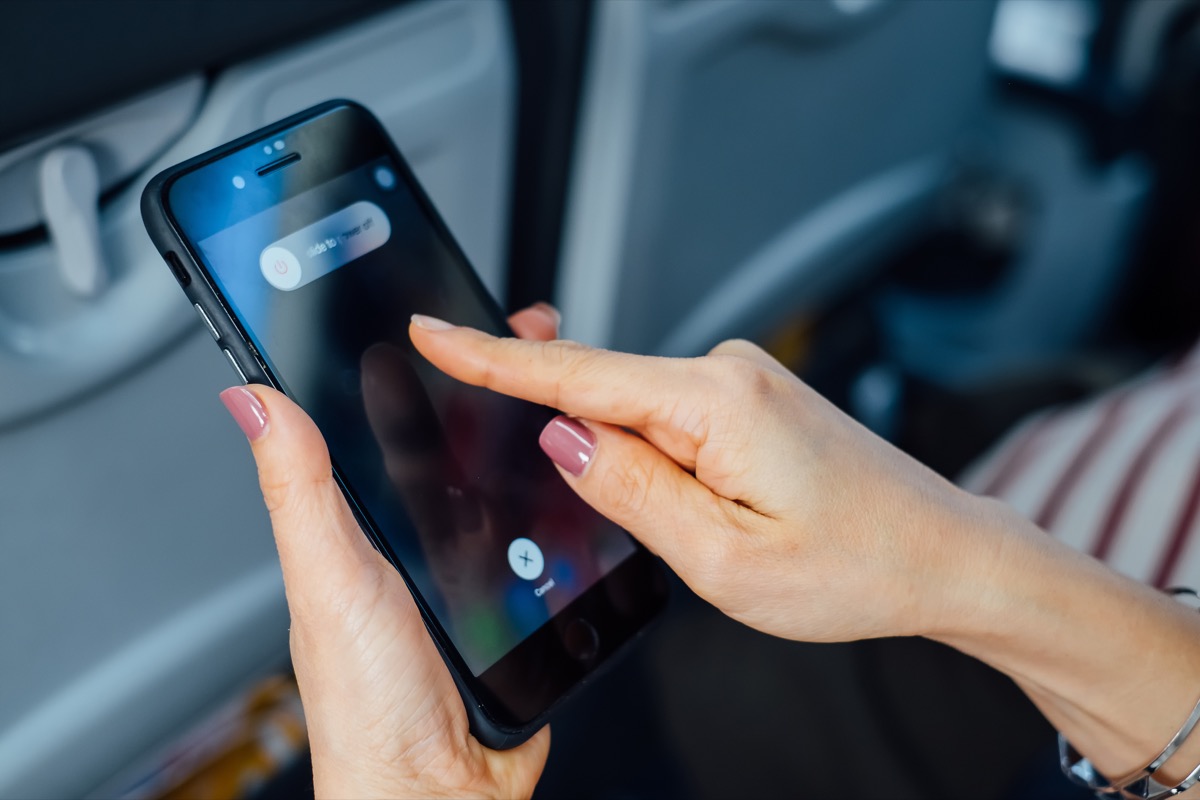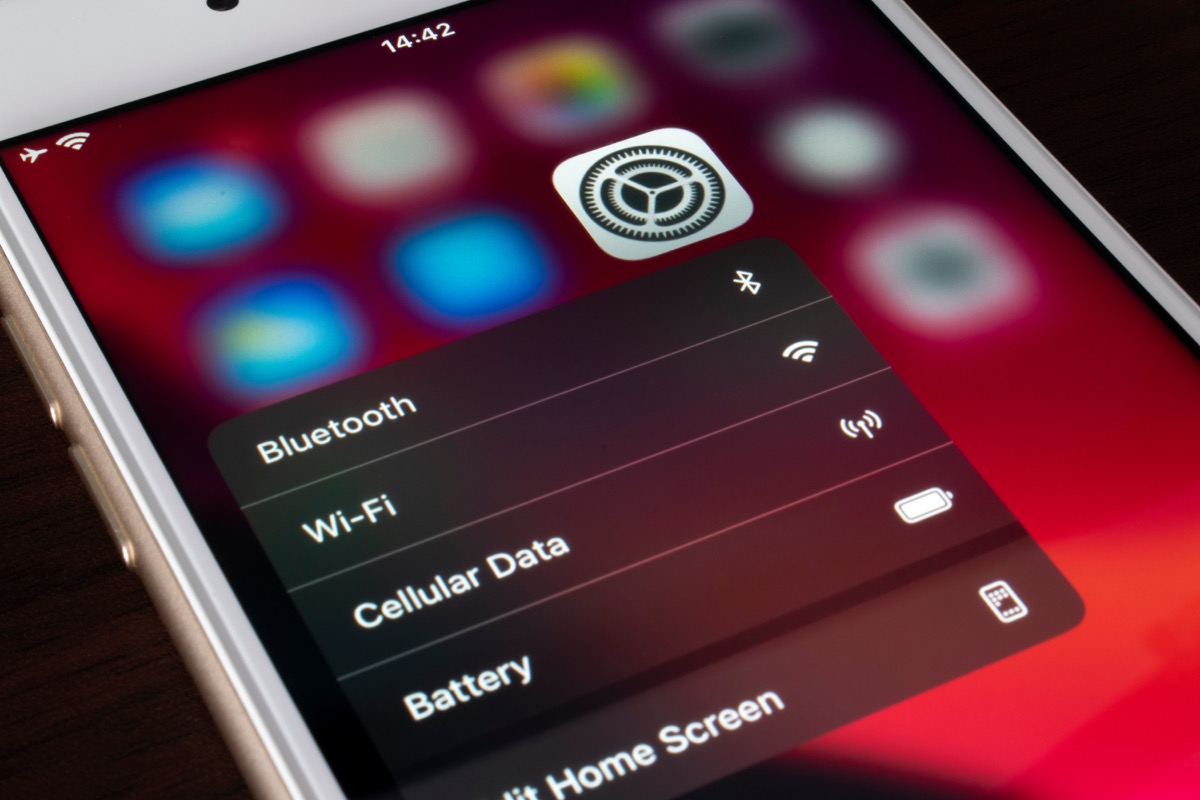RELATED: If You See This on Your iPhone, Don’t Click It, Experts Warn. According to a “best practices” guide released by the National Security Agency (NSA), turning your phone off and back on once every week can be an easy way to stop hackers from gaining access to your sensitive information. The simple tactic—such a common fix for most gadgets and tech that it’s become a cliche—can work as an important roadblock to anyone looking to exploit security vulnerabilities in your device, the Associated Press reports. According to Neal Ziring, technical director of the NSA’s cybersecurity directorate, the simple act of rebooting won’t be enough to stop all data breaches and information theft, but it complicates hackers’ jobs in the long run by making it more difficult to maintain access to your phone. “This is all about imposing cost on these malicious actors,” he told the AP. Experts explain that a change in the way hackers gain access to devices has evolved in recent years. While accidentally downloading a bad program can still lead to a breach, many attacks on phones and tablets now use what’s called a “zero-click” exploit that can install itself without warning. “There’s been this evolution away from having a target click on a dodgy link,” Bill Marczak, a senior researcher at Citizen Lab, an internet civil rights watchdog at the University of Toronto, told the AP. However, gaining access to a device doesn’t guarantee that a hacker will have permanent access to it. Strong security systems built into devices and constantly updated can make it nearly impossible for digital thieves to permanently embed themselves deep in a computer’s system. Instead, this forces them to use programs known as “in-memory payloads” that are harder to detect but typically can’t survive a system reboot, according to Patrick Wardle, a security expert and former NSA researcher. RELATED: If You See This Message on Your Roku, Report It Immediately, Experts Say. Unfortunately, the task of maintaining digital security is becoming a more difficult prospect as technology takes on an increased role in our lives. A report by Amnesty International published on July 18 found that Apple iPhones could be hacked without users even needing to click a link, giving the attacker access to everything from emails and text messages to the phone’s camera and microphone.ae0fcc31ae342fd3a1346ebb1f342fcb The report states that a “zero-click” infiltration developed by the Israeli cyber espionage firm NSO Group was used to infect iPhones belonging to human rights advocates and journalists, even though the devices were running up-to-date software at the time. This highlights the vulnerability of “0day” exploits, a term used for security vulnerabilities that tech companies haven’t become aware of yet. “Attacks like the ones described are highly sophisticated, cost millions of dollars to develop, often have a short shelf life, and are used to target specific individuals,” Ivan Kristic, head of security engineering and architecture for Apple, said in a statement. “While that means they are not a threat to the overwhelming majority of our users, we continue to work tirelessly to defend all our customers, and we are constantly adding new protections for their devices and data.” While hackers will always try to stay one step ahead of security efforts, the NSA’s “best practices” list does point out some other simple tips for keeping your phone better protected. They suggest disabling Bluetooth whenever it’s not in use, not connecting to any public Wi-Fi networks, not jailbreaking your phone, and only using trusted accessories with your device. The agency also says to be cautious with which apps you download, where you get them from, and to forcibly close them when you’re not using them. And of course, you should keep your phone’s operating system updated with the latest software.



